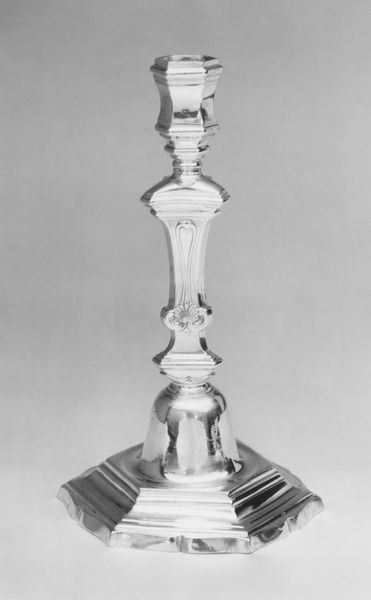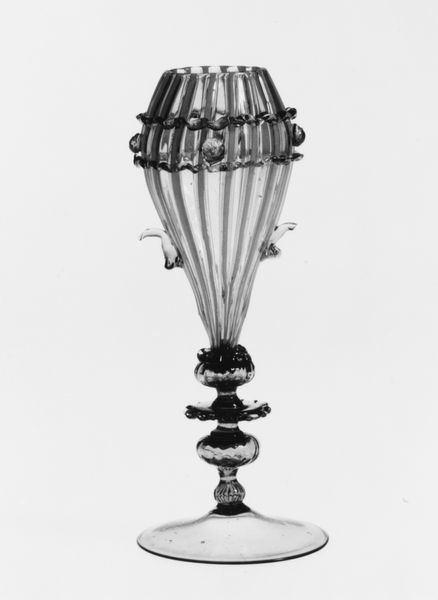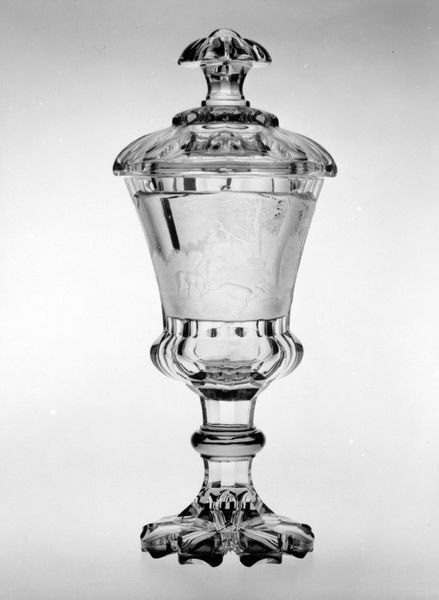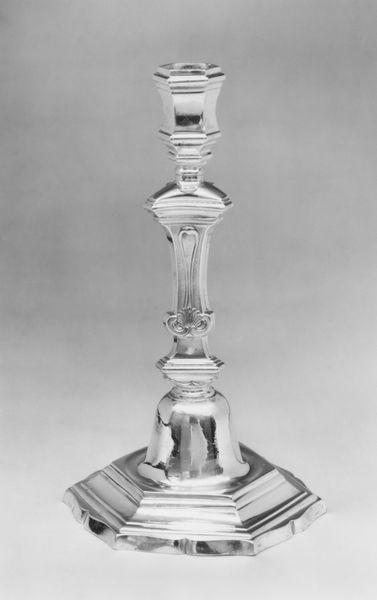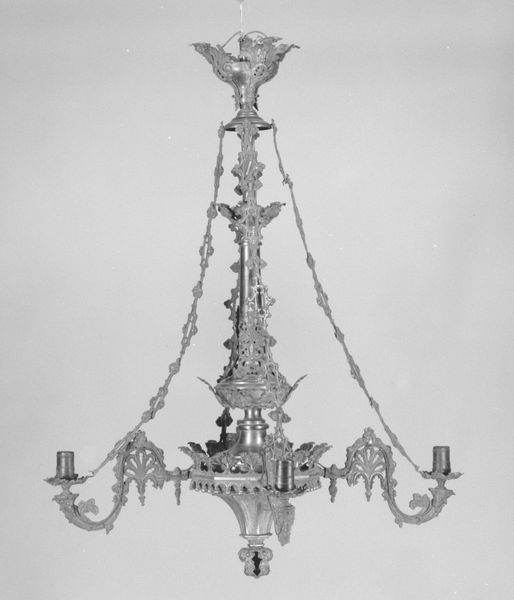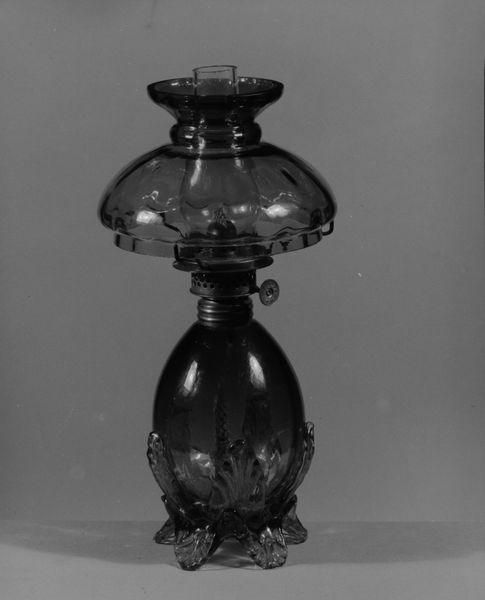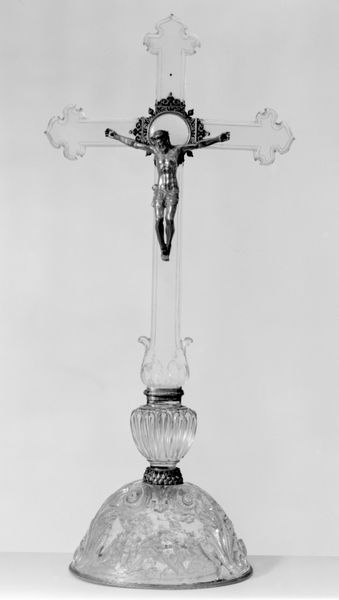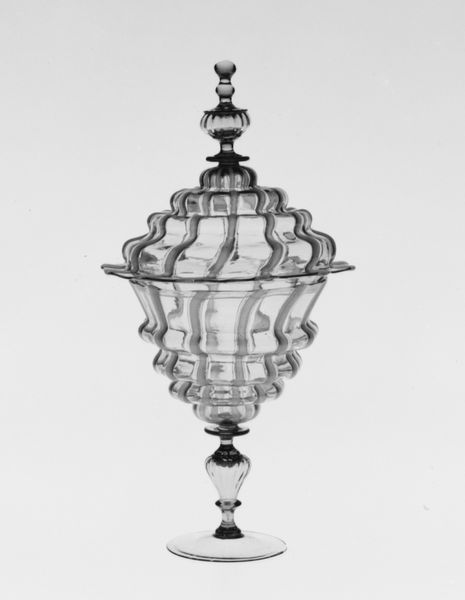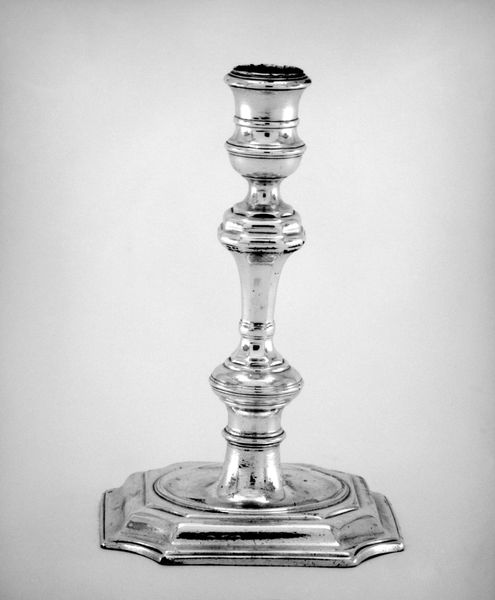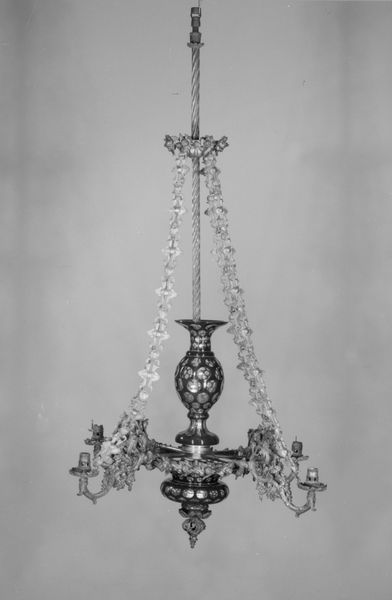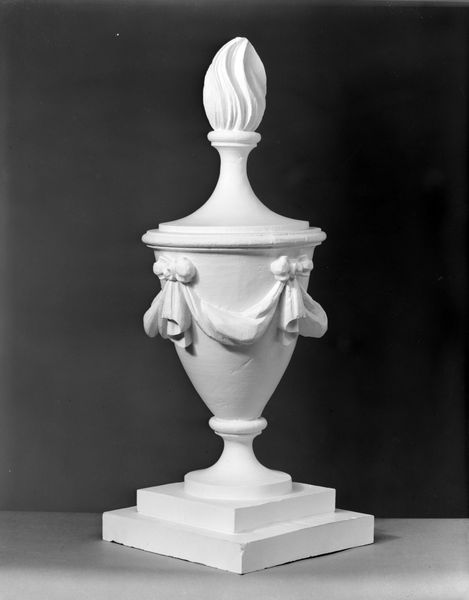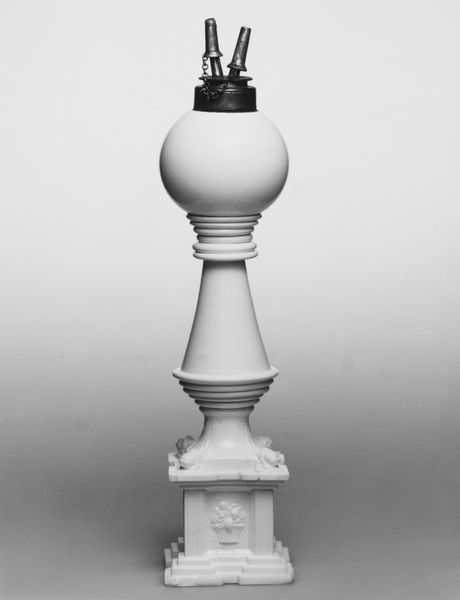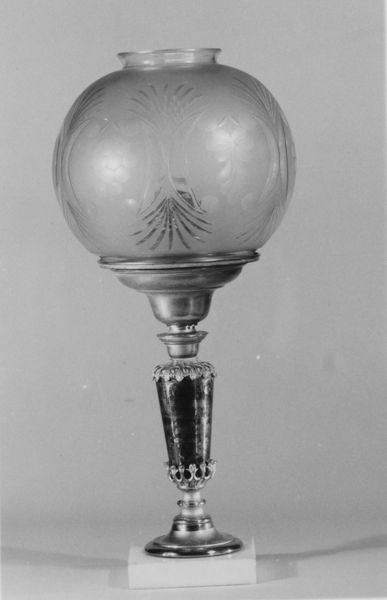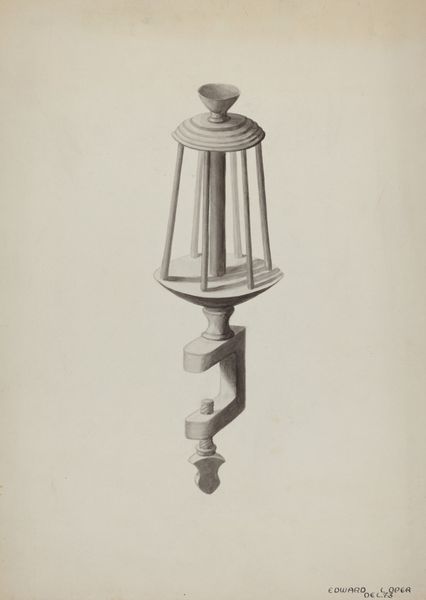
glass, sculpture
#
glass
#
sculpture
#
black and white
Dimensions: H. 8 5/8 in. (21.9 cm)
Copyright: Public Domain
Curator: Standing before us is an exquisite glass object crafted between 1830 and 1840, attributed to the New England Glass Company. It's a whale oil lamp, currently residing here at the Metropolitan Museum of Art. Editor: My immediate feeling is of a delicate monument. There's this almost neoclassical severity in the base supporting a graceful, elongated reservoir. An intriguing dialogue between monumentality and fragility. Curator: Indeed! The use of glass as the primary medium elevates it beyond mere functionality. The form mimics architectural pillars. Look closer at the detail—those delicate ridges on the base, the subtly sculpted adornments around the top, and how it creates subtle modulations of light. Editor: Which speaks volumes, literally, about the whaling industry. The transformation of whale blubber into light. These weren’t inexpensive things either; crafted glass represented a certain status in relation to the industrial process and to what level one depended on whale-derived resources to sustain a more advanced life. Curator: Exactly! Lighting was not merely a necessity, but a luxury. But can you imagine the olfactory experience, though? The rather… potent aroma that would have accompanied the illumination? Editor: Haha! A sensory sacrifice for progress, perhaps. I wonder, did the New England Glass Company focus largely on items for whaling commerce, or were they just following supply? The glass itself carries echoes of the broader political ecology. Curator: Their work spanned a range of domestic and decorative items, but they undoubtedly responded to the demand from the whaling boom. This lamp offers us insight into that connection. The availability of a novel material and a certain market interest enabled craftspeople to test their limits on a variety of consumer objects. Editor: It's a strange feeling—to contemplate beauty born from a process now considered unethical. It asks us to look at the objects around us with the material chains in full view. Curator: Agreed. Beauty and progress aren't always born of noble means. Something to remember as we reflect on our current moment, and how things will stand later on.
Comments
No comments
Be the first to comment and join the conversation on the ultimate creative platform.
